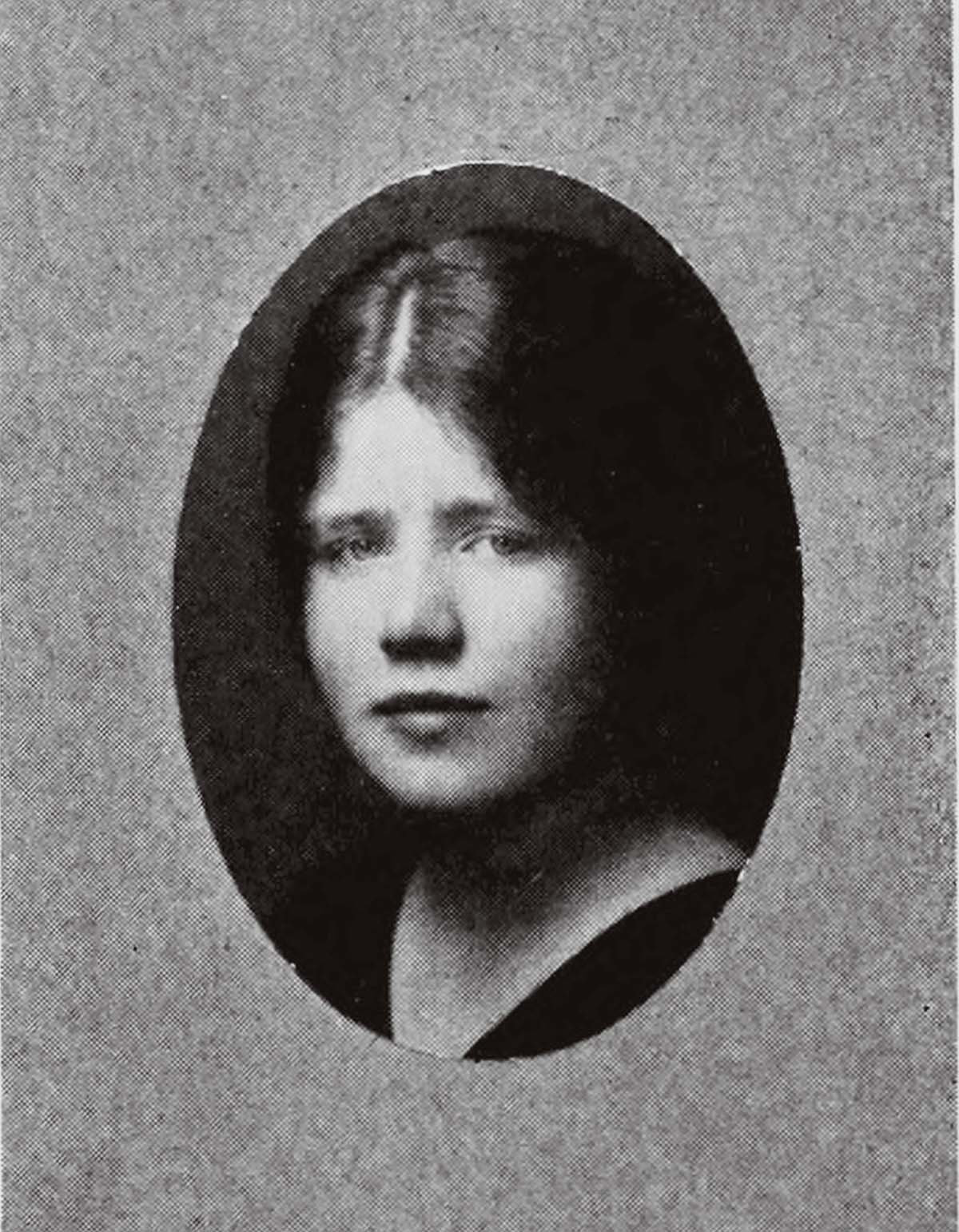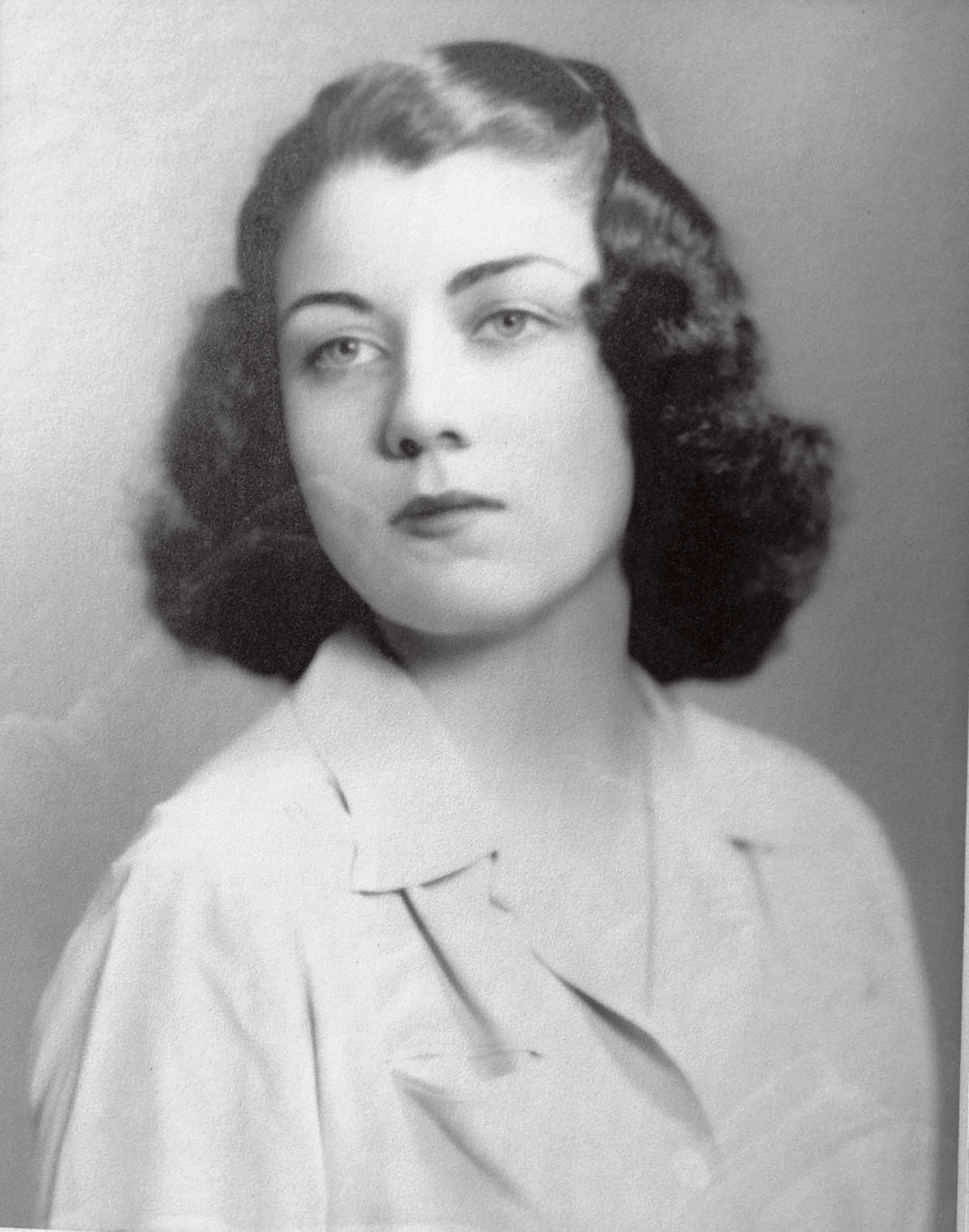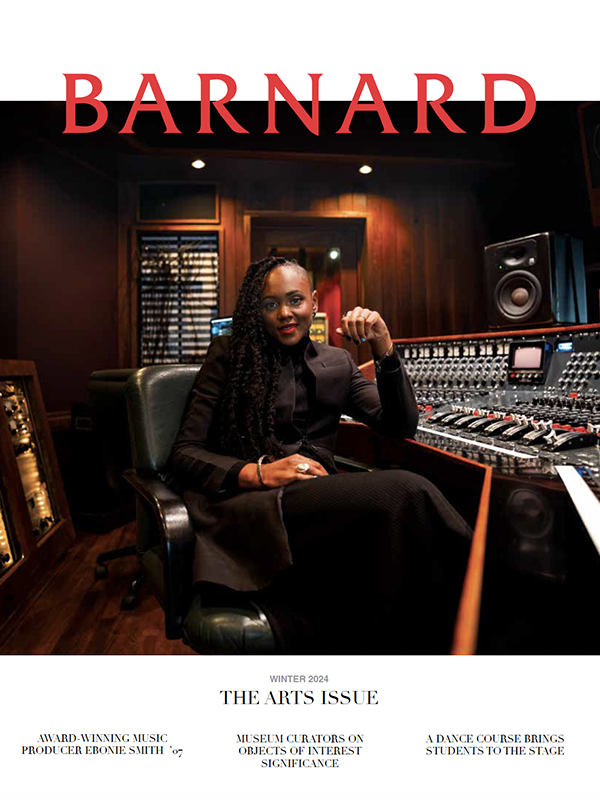Theirs is a tale of sibling devotion—to each other, and to a cause.
Born early in the 20th century, two sisters—Helen Chamberlain Josefsberg ’30, an elementary school teacher, and her younger sister Barbara Chamberlain, who spent her career at the State Department and the Defense Intelligence Agency—managed to amass more than $4 million. They lived simply, invested wisely, and believed strongly in the importance of promoting women’s education. Without heirs or living husbands, they retired together to a small town in Cape Cod and remained of one mind when it came to Barnard. Helen’s alma mater, an institution they both believed in, would figure prominently in the will of each sister. This shared generosity is even more remarkable because Barbara was a 1944 graduate not of Barnard, but of another prominent liberal arts college.

“It was a very pleasant surprise,” says Bret Silver, who is Barnard’s vice president of development. The estate gift “reminded my colleagues and me of the strong connection that Barnard alumnae—and their families—feel to the College, to its academic mission, and to the young women who follow in their footsteps and choose to study here. We were honored that these two sisters, one of whom had no official ties to Barnard, chose to create a permanent legacy here in such a meaningful way.”
The bequest will support academic life at Barnard in a variety of contexts. The College will create the Barbara Chamberlain and Helen Chamberlain Josefsberg ’30 Professorship of Anthropology, which is particularly fitting given Barbara’s global experience. During her tenure at the State Department, she lived in South Africa and Greece as well as Paris and London, and traveled to many other countries in Europe and Africa. The sisters’ charitable contributions during their lifetimes also suggest a strong interest in advancing women’s education and rights, according to Richard O. Perry, who served as their lawyer. The bequest will also help fund the Barnard Center for Research on Women, student internships, and financial aid, as well as other programs.
“It’s especially nice when we have this link between the generations,” says Audra Lewton, the director of gift and estate planning. “The gift will have an impact on Barnard students for many years to come.”
The College also plans to use a portion of the sum to encourage others to follow the example set by Barbara and Helen, who planned so thoughtfully for Barnard in their estates. In this initiative, expected to launch in June, an alumna who informs the College of her plans to include a gift to Barnard through her estate will enjoy a new form of special recognition. Using money from the Chamberlain gift, the alumna will be honored by an immediate contribution in her name to a scholarship fund for current students, according to Silver. He adds, “This means that gifts that will take effect in the future will also have an impact now.”
With few of their acquaintances still living, limited information about the sisters is available. Helen died in 1999 at the age of 90 and left her estate to her younger sister. Her husband had died many years before, shortly after they married. Barbara died last September at the age of 93, after struggling with dementia for about a decade. She never married.
The sisters grew up in Tenafly, N.J. Their father, Robert Chamberlain, was treasurer of a cable company in New York City. Their mother, also named Helen, was a homemaker. A middle sister, Frances, died at a young age. An undated photograph among Barbara’s possessions shows five teenage girls, all attired in white dresses, standing in a large, shady front yard. The adolescent at the front of the line casually drapes her hands on the shoulders of a little girl in a plaid dress, who wears an enormous bow in her hair and a grin on her face. The pair seems to be Helen and Barbara, according to Donna Gorton, a nurse and longtime caregiver to Barbara. Gorton believes that because Barbara was born more than a decade after her big sister, Helen played a maternal role in Barbara’s life.
Helen, a resident of Brooks Hall at Barnard, earned a master’s degree at Columbia Teachers College. She is remembered for her dedicated teaching of sixth graders at a Tenafly elementary school, which included weekend trips to museums in New York City as well as hikes and nature lessons.
Barbara didn’t speak much about her work in the Foreign Service and for the Defense Intelligence Agency, which is part of the Department of Defense. But over the years Perry learned that upon receiving her undergraduate degree, her goal was to work for the State Department. She told him that she applied but was denied—they were only hiring women as secretaries. So she got a secretarial degree from Katherine Gibbs in New York City in June 1945 and joined the Foreign Service that month as a secretary in the Bureau for Intercultural Education.
Among her papers, Perry located a letter of commendation received on her retirement from the Defense Intelligence Agency, where she worked from 1969 through 1986. The letter made special note that “the Intelligence Community [has] recognized you as the most knowledgeable person on the Caribbean.” And another congratulatory letter from a male employee included this telling line: “The Agency will miss your hard work, efficiency, and great filing!” Perry finds this notable as evidence that her goal of equality for women had not yet been obtained.

Perry and Gorton both note Barbara’s strong and steadfast nature. Perry recalls finding a correspondence between Barbara, who was living in London, and a New York-based stockbroker, dated 1962. Barbara was requesting investment advice for $10,000. The broker suggested a safe stock, U.S. Steel, recalls Perry. But Barbara wrote back, “No, I don’t think so. There’s this awful drink everyone’s drinking.” She bought $5,000 worth of shares in Coca-Cola, as well as $5,000 in AT&T. “Barbara was a person who would fix her mind on something like a bulldog on a mailman’s pants,” says Perry.
Although Barbara wouldn’t hesitate to spend money on her sister or her beloved cat Tootie, she was generally cautious about her finances. She proudly described to both Perry and Gorton how she had purchased a Ford when she was living in London, had it shipped to her in England, drove it around the country, and then resold it for more than she had paid.
Gorton recalls that even as Barbara’s health was failing, she spoke often of her sister, and also of how her money shouldn’t be spent on frivolities, as it was destined for Barnard. Since Helen loved Barnard, which stands for the ideals that were so important to the sisters, “it was clear from the beginning that Barbara wanted her money to go to Helen’s school,” Perry says. Gorton concurs: “Her sister was her life.” Their shared commitments—to each other and to the education and advancement of women—will now live on at Barnard. •
Photographs courtesy of Barnard Archives and the Chamberlin estate.
